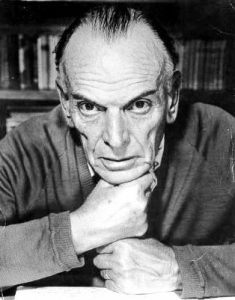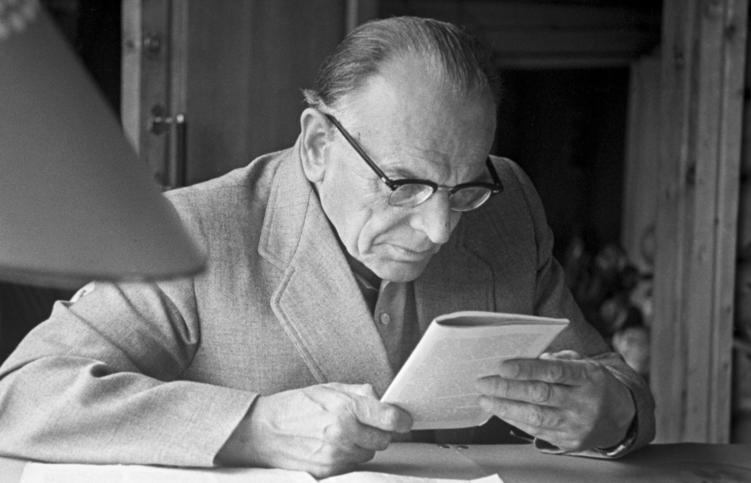Konstantin Georgievich
Paustovsky
1892-1968

Konstantin Paustovsky was a Russian writer and one of the great masters of 20th-century prose. He is known for his heartfelt depictions of nature, human nature, and the inner worlds of individuals. His works include novels, novellas, short stories, and essays. He was born on May 19, 1892 in Moscow in a family with diverse backgrounds: Georgy Mikhailovich was a descendant of Zaporozhian Cossacks, while Maria Georgievna came from a Polish-Czech family. They had many children and despite financial difficulties, they raised them with love for knowledge and culture. When Konstantin was six years old, the family moved to Kiev, which significantly impacted his future life. There, he attended a gymnasium and became interested in literature, poetry, and art. He met prominent figures like Mikhail Bulgakov and Alexander Vertinsky, and began writing poetry at a young age. However, his works were unsuccessful, so he decided to switch to prose after receiving advice from Ivan Bunin. This became a turning point in his life. During his studies, Paustovsky was actively interested in literature and became a member of literary circles. However, in 1908, after the breakdown of his family, he found himself in a difficult situation and moved to Bryansk to live with his uncle. This time marked a turning point in the life of the future writer. In Bryansk, Paustovsky attended the gymnasium and continued to hone his literary skills, while experiencing the hardships of daily life. In 1911, he entered the history and philology department of Kiev University, but feeling that his future lay in literature, he transferred to Moscow University’s law faculty. During the First World War, Paustovsky served as an orderly, spending several months on the front lines before working in factories to support his family after both his brothers were killed in action. This time was not only a period of trials but also of creativity for the writer. He began working on his first major work, the novel “Romantics”, which was published in 1916. After the Revolution of 1917, Paustovsky continued his literary activity, writing for various newspapers and magazines. One of these publications was the newspaper “Seaman” in Odessa, where he wrote about the lives of sailors and the port. In the early 1920s, he returned to Moscow and became an active member of the literary community, publishing his work in magazines and receiving numerous reviews. During this time, his work gained popularity among both adults and children. A special place in his work was occupied by the themes of nature and human relations with the world around them. He managed to create unique, heartfelt prose in which nature becomes not just a backdrop, but an essential part of human life. Novels and stories about nature and people, such as “Watercolor Paints”, “The Meshcherskaya Side”, and “Northern Lights”, among others, were vivid examples of the author’s skill. In the 1930s, the author became one of the most recognized writers in the Soviet Union. His works, including “The Tale of Life,” “The Golden Rose,” and “Touches to a Portrait,” were warmly welcomed by readers and critics. He became a master of short prose with an amazing ability to capture the most subtle emotions and relationships of people. His writing was characterized by vividness and clarity, as well as a deep humanity, which won the hearts of readers from different generations. During the Great Patriotic War, the author continued to create works filled with patriotism and optimism. After the war, he expanded his themes, exploring the human spirit, resilience, and the beauty of nature. The author’s work covered a wide range of topics, from personal experiences to social and cultural issues. He never limited himself to one particular subject, but rather explored a variety of aspects of life. His work continues to inspire readers today, and his writings are an integral part of Russian literature of the 20th century.
Address: Moscow, Kotelnicheskaya nab., 1/15, building V

